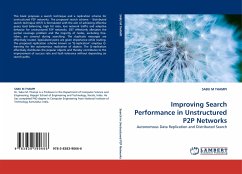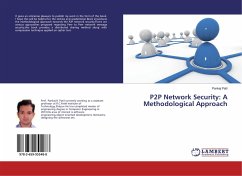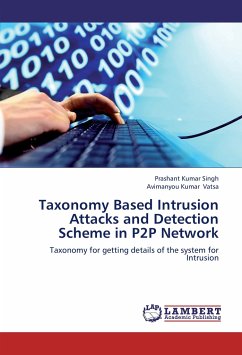Recent report has shown that there is an upward trend to digital information production. The volume of digital information from 0.8 ZB in 2009 will increase to 35 ZB in 2020. For the first time ever the total volume of digital content will exceed the entire storage capacity. This trend towards the production of information requires a scalable infrastructure capable of indexing and searching rich content, such as HTML, music and ... files. A traditional solution is to construct a centralized searching server, such as that which all current search engines operate. This kind of solution needs to maintain an enormous centralized database about all the online information. They require a large amount of sophisticated hardware and high-performance software to pretend to be scalable and available. The only advantage of centralized search servers is that they can provide exact match queries. But the disadvantages of centralized searching servers are that they impose their censorship policy, use privacy of users, there is no freshness of responding guarantee, and there is the issue of the threat of a single point of failure. The main objective of this study is to respond all these issues.
Bitte wählen Sie Ihr Anliegen aus.
Rechnungen
Retourenschein anfordern
Bestellstatus
Storno








